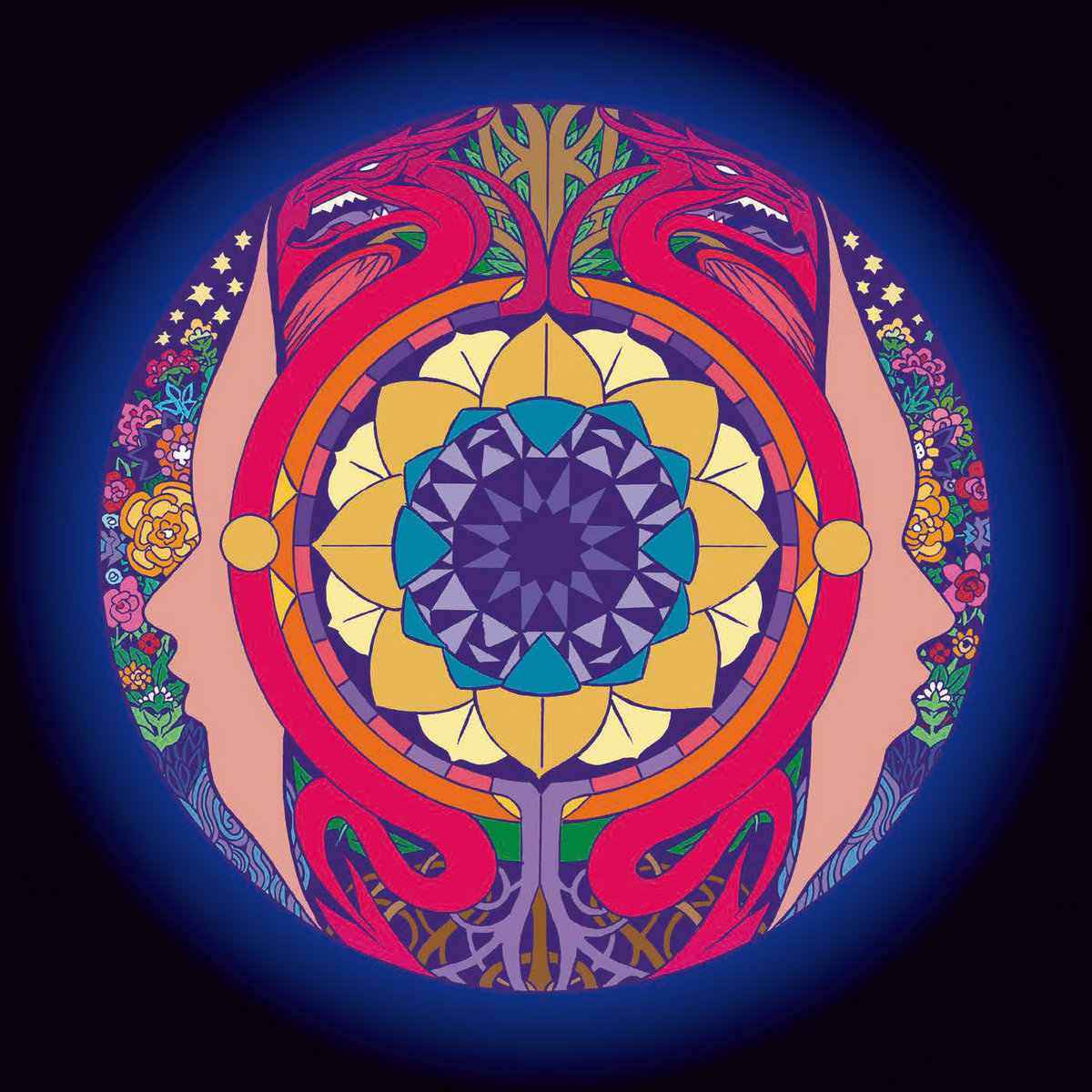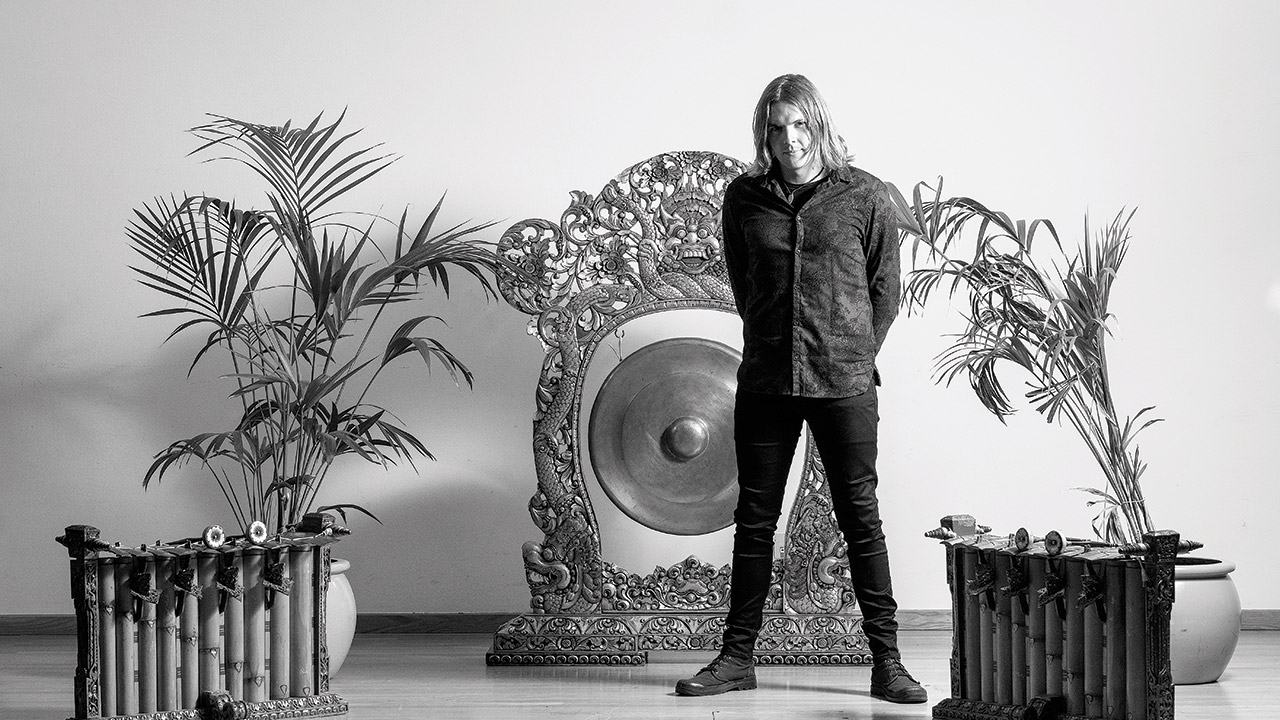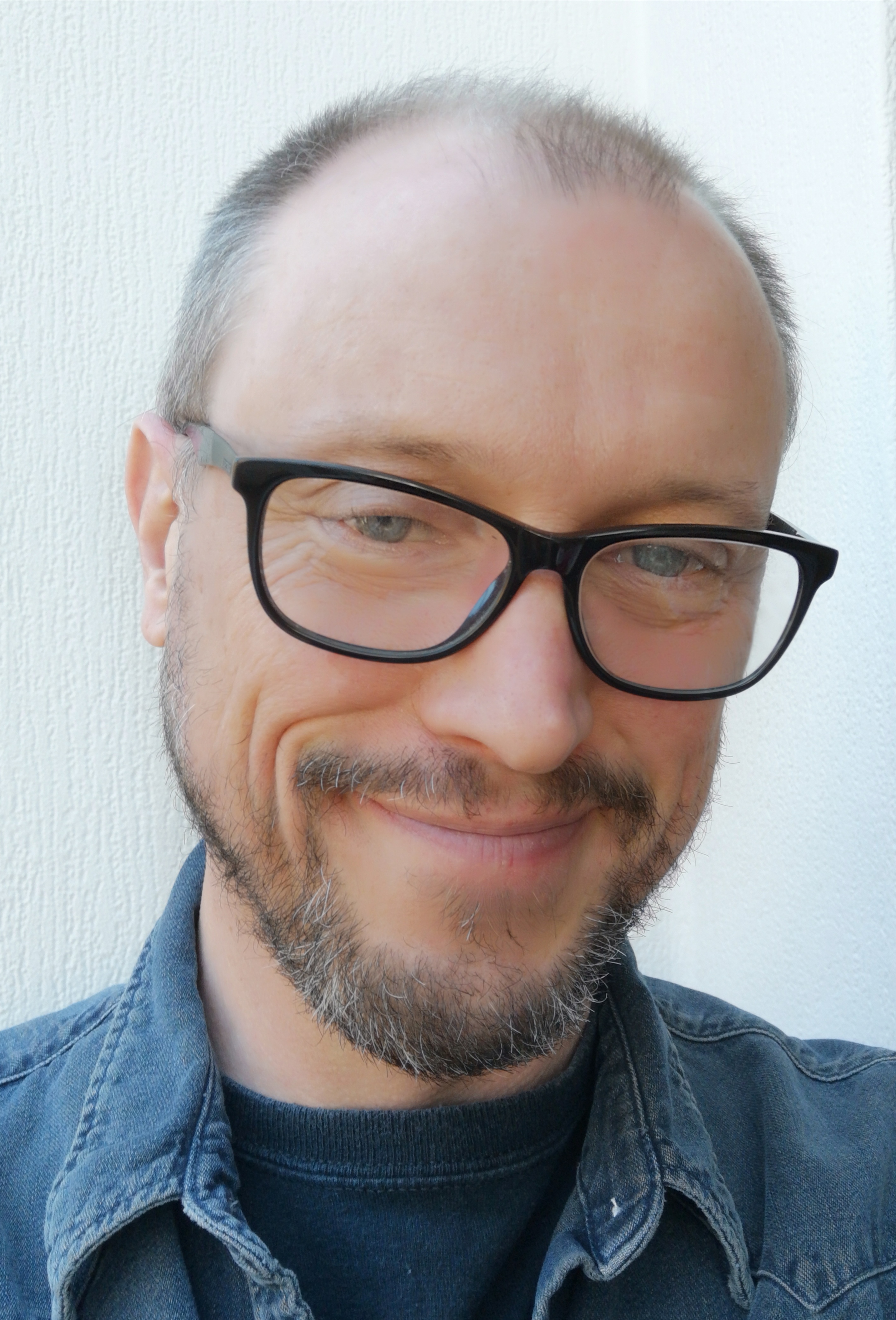He plays bass in Knifeworld, took over from Kavus Torabi as the multi-instrumentalist for the Mediaeval Baebes, teaches music and has plenty else on besides. At 29, Charlie Cawood is treading a fascinating path, blending classical Western music with Asian and Oriental styles, all with an avant-garde, psych sensibility. His first solo album, The Divine Abstract, is a transcendent work of art, an erudite instrumental exploration of both culture and spirit. It’s been seven years in the making and has seen him bravely confront the depression that has dogged him for years.
How did you become so well versed in non-Western music?
I started learning classical music in school, did my grades, sight reading, theory. I was living in Ilford, which is a great cosmopolitan part of London, and I was asked out of the blue if I’d like to learn sitar. From there I got into Indian classical music, but also flamenco, which is probably the hardest thing you can do on guitar. I also studied the pipa – the Chinese lute – at summer school at the Royal Academy Of Music. I went to a Japanese music concert on the South Bank when I was 16 and that really opened my eyes to that part of the world. I didn’t do A-Levels, but got a diploma from the Guitar Institute in London, then a degree in Contemporary Music from the London Centre Of Contemporary Music, where I now teach. I went on to study East Asian Music at SOAS [School Of Oriental and African Studies].
Was there any rock or prog in your musical diet back then?
Early on I was into Aerosmith, Iron Maiden, Bad Religion, then as a 16-year-old I got into Zappa, Gong, Ozric Tentacles. I never really considered these prog, but because I was into more exploratory music, that was a label people started applying to me! Later I discovered Porcupine Tree, Tool, Opeth. [Miles Davis’] Bitches Brew gave me a real taste for jazz, as did Mahavishnu, but particularly John McLaughlin’s work with Shakti, which was a bridge between guitar music and Indian classical. I was oblivious to any prog scene before I got into Knifeworld. But Kavus [Torabi] got me into that Cardiacs-y scene – Stars In Battledress, Thumpermonkey, North Sea Orchestra, those guys.

How did your association with Knifeworld come about?
Ten years ago a friend took me to what would be the Cardiacs’ last Astoria gig. I didn’t know a single song, but I loved it – it’s probably my favourite gig ever. Weirdly, Knifeworld’s then-drummer Khyam [Allami] was a fellow student at SOAS. I went to a gig in 2011 and met Kavus through him. We got talking and soon after, he asked me to join the band.
And Kavus was the Mediaeval Baebes’ instrumentalist before you, wasn’t he?
He’s known [lead Baebe] Katharine Blake for years. I remember my GCSE teacher making disparaging remarks about them as they were on the classical crossover charts. But I listened and heard them do all this weird, complex psych stuff too. When Kavus joined Gong, he asked me if I’d be interested in the gig because he knew I played saz, oud and all these non-Western instruments. That was three-and-a-half years ago. I’ve played with them a lot at gigs and festivals, and they’ve got an album out next year.
The Divine Abstract brings together the many diverse strands of your experience. Why did it take over seven years to make?
It’s like it needed that time to gestate into something meaningful. I’ve got many friends playing lots of different parts, a cast of people who’ve only come into my life in the past few years. Amir [Shoat] who engineered and co-produced it with me, Katharine’s on it, Chlöe [Herington] from Knifeworld’s on bassoon, Diego [Tejeida, of Haken]. But Knifeworld’s been busy, so have the Mediaeval Baebes, and my other bands Tonochrome and My Tricksy Spirit. Between gigging, teaching and touring, the album got pushed aside.
You’ve been very open about your battle with depression. That must have been a factor too?
Yes. I started to accept I suffer from depression about three years ago, when it was really starting to affect my life, my ability to function. Then last year I went through a particularly bad bout. Being open about it brings you closer to the people around you; talking about it without the fear of stigma makes you more socially engaged. It turns out that practically all my musician friends suffer through depression and anxiety. When I got back into the album a few years ago, the depression scuppered it – it made me very fearful and created a barrier between me and the music. Then I realised that the one thing I had to hold on to, when all other meaning had disappeared, was the album.
And did focusing on the album help?
It did. When I settled down to work on it, I knew I was in the right place. But it’s not like it cured my mental health – it brought a lot of stress of its own! But through the anxiety there was an end goal in mind. I write myself out of the state, rather than make music that draws on it. The music doesn’t express it, but dispels it.
Some parts of the title track reference William Blake – Fearful Symmetry, The Earth’s Answer. Are you a fan?
Yes, and not just his poetry but his ideas about creativity and the imagination, that transcendental thing he had. I’m really interested in how instrumental music can form a liminal space between two different states.
Eh?
[Laughs] The middle part of Earth Dragon combines musical themes from the first and third parts, so it’s this in-between space with elements of both the past and future. I was watching a lot of David Lynch at the time! I just love the universality of the language of instrumental music. It comes from a purer, more abstract place, and helps us access something that’s higher than music just tied down with words.
This article originally appeared in issue 83 of Prog Magazine.

